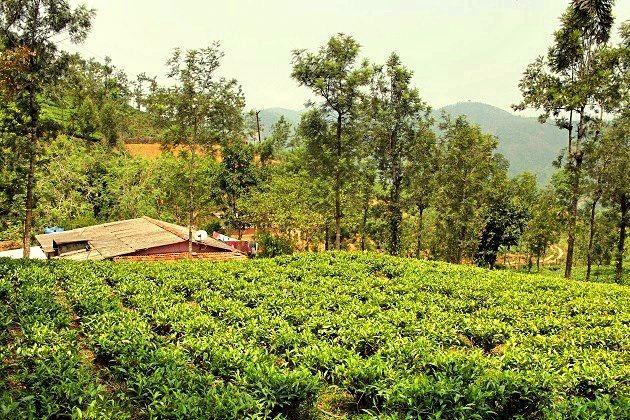FRA Implementation: Tamil Nadu Emerges as Worst Performer

Image Credit: The News Minute
Tamil Nadu has been assessed as the worst performer in the country regarding the implementation of the Scheduled Tribes and Other Traditional Forest Dwellers (Recognition of Forest Rights) Act, 2006 (FRA). According to the Act, formation and smooth functioning of the gram sabhas enable tribals and other forest dwellers to be decisive in the determination of local policies and schemes impacting them. But, in Tamil Nadu, many tribal villages have not formed gram sabhas, and even those that have are unaware of the role of these bodies in implementing the FRA.
The gram sabhas are meant to be democratically formed and autonomously functioning. However, the Tamil Nadu Forest Department continues to have a big say when it comes to functioning of these bodies. This is also due to the limited awareness about the Act, not only among the forest dwellers but primarily among the department officials.
This improper implementation of the FRA limits the rights and accessibility of the communities to the forest and land. Given that tribal communities heavily rely on natural resources for their livelihoods, denial of rights over the forest and land hits at the heart of their subsistence. However, the level of accessibility to and assertion over the resources seem to vary across tribes and regions in the state.
Thirty-six communities are classified as Scheduled Tribes (ST) in Tamil Nadu and they are spread out in pockets across the state, with higher density in the Wester Ghats. STs make up for just a little over 1% of the state’s population. The literacy rate among them in Tamil Nadu is 41.5% as per the 2011 census, which is lower than the state average of 80.33%.
POOR IMPLEMENTATION
Under FRA, tribals who have been residing in the forests prior to December 13, 2005 and the non-tribals who have been residing in the forests for three generations i.e., for 75 years as on December 13, 2005 should be given ‘title rights’. But, as per reports from 2019, without following due procedures, Tamil Nadu government has rejected 10,656 claims for titles out of the total 32,000 claims filed.
The state also received the lowest number of FRA claims filed by traditional forest dwellers and Scheduled Tribes among the big states. Tamil Nadu distributed 6,387 titles, for a total of 8,607.26 acres. Even a smaller state like Kerala, which also has just a little over 1% of the ST population, performed better with 24,599 titles distributed. Tamil Nadu, on the other hand, had a 33% rejection rate.
Pandian, an independent activist working on the issue of the implementation of the FRA in Dindigul district, said “The truth is that the Forest Department is ill-aware of the Act; they are not aware that the gram sabhas have the right to make decisions, and the department is only in a position to cross-check and accept the claims.”
Gram sabha leaders stated that a Government Order (GO) was passed by the Revenue Department on July 25, 1989 banning the issue of titles to people's cultivable lands in all the hill districts in the state and that this outdated GO is still used by officials to deny land rights to families cultivating their lands for generations. Tribal rights organisations are fighting for a democratic and open process with gram sabhas’ role being key in determining the rights of the weaker and marginalised sections.
COMMUNITY FOREST RIGHTS DENIED
“The most important of all the rights which provides for conservation and protection of forests by the hamlet gram sabhas is the Community Forest Rights and it is ignored and resisted by the bureaucracy, particularly the Forest Department,” said a tribal rights activist from Kanyakumari.
As per the Act, any project in the forest region should be implemented only with the prior informed consent of the concerned gram sabhas, but that does not happen, according to the activist.
Hundreds of families inhabit Kalakkad Mundanthurai Tiger Reserve (KMTR) in Tirunelveli district. Their legitimate rights under FRA continue to be denied by the Tiger Reserve officials who assert that forest rights cannot be recognised in these reserves and that the inhabitants are to be relocated. Stating that this is false and a violation of the FRA, the Pothigamalai Kanikkaran Munnetra Sangam has been fighting the Forest Department.
Ownership of minor forest produce (MFP) and harvesting of trees on one’s own land for self-use is a right guaranteed under the FRA. The resistance to this by the Forest Department is illegal, but is rampant nonetheless. Various tribal rights groups are also demanding that harassment by the Forest Department such as filing false cases, destroying crops and demolishing houses should be stopped at once.
FRA also provides for certain development rights under Sec 3(2) which includes the provision of roads. The Forest Department continues to object to such development projects in certain regions citing different laws.
Tribal communities also face threats of eviction and destruction of crops and houses, which are a violation of the FRA and also an offence under SC/ST Prevention of Atrocities Act 1989. Forest fires are also often blamed on the members of tribal communities. In this context, to ensure just and fair treatment, certain organisations are also demanding reservation for STs in government appointments in the forest region (in and around the forests).
Earlier 19% quota was allotted to SCs and STs combined; this was later split up into 1% for STs and 18% for STs. Many opine that the earlier arrangement provided greater scope to the ST community and demand that it should be brought back.
Get the latest reports & analysis with people's perspective on Protests, movements & deep analytical videos, discussions of the current affairs in your Telegram app. Subscribe to NewsClick's Telegram channel & get Real-Time updates on stories, as they get published on our website.
























